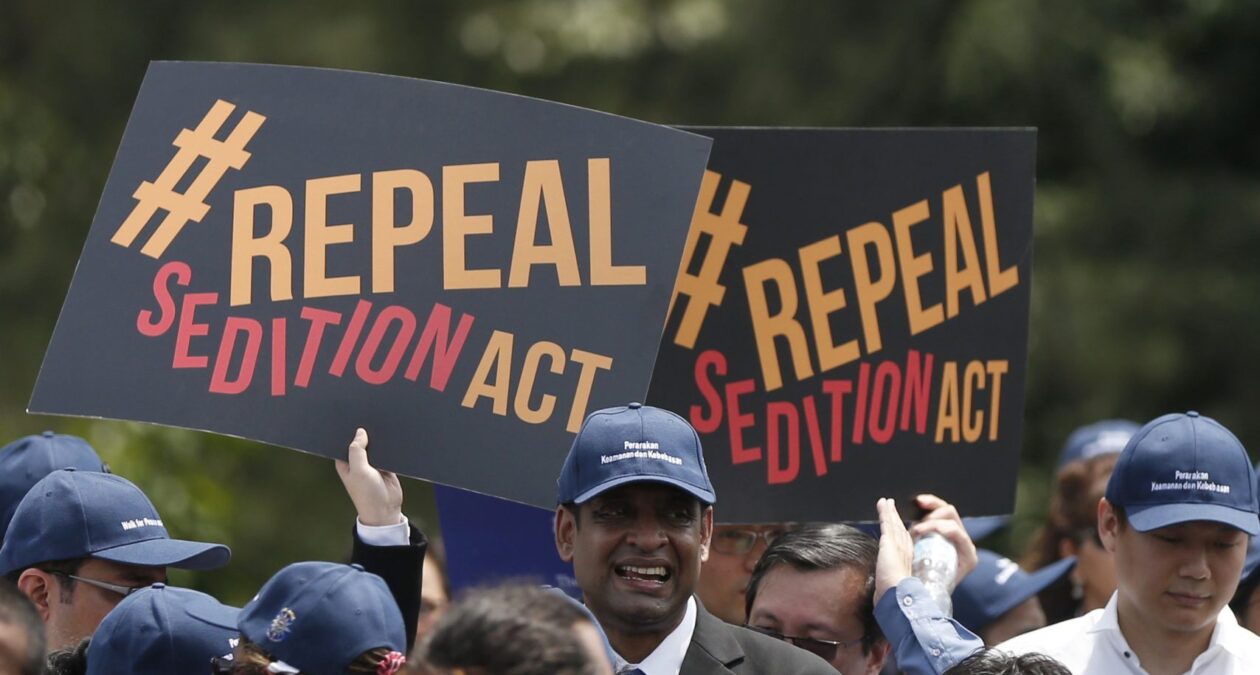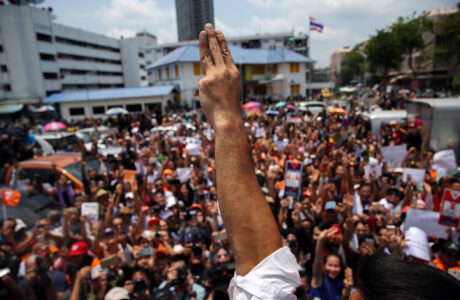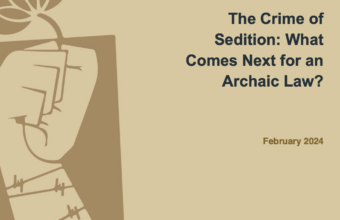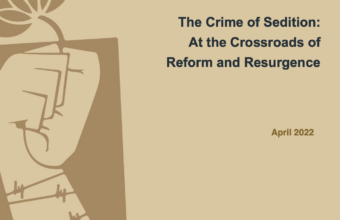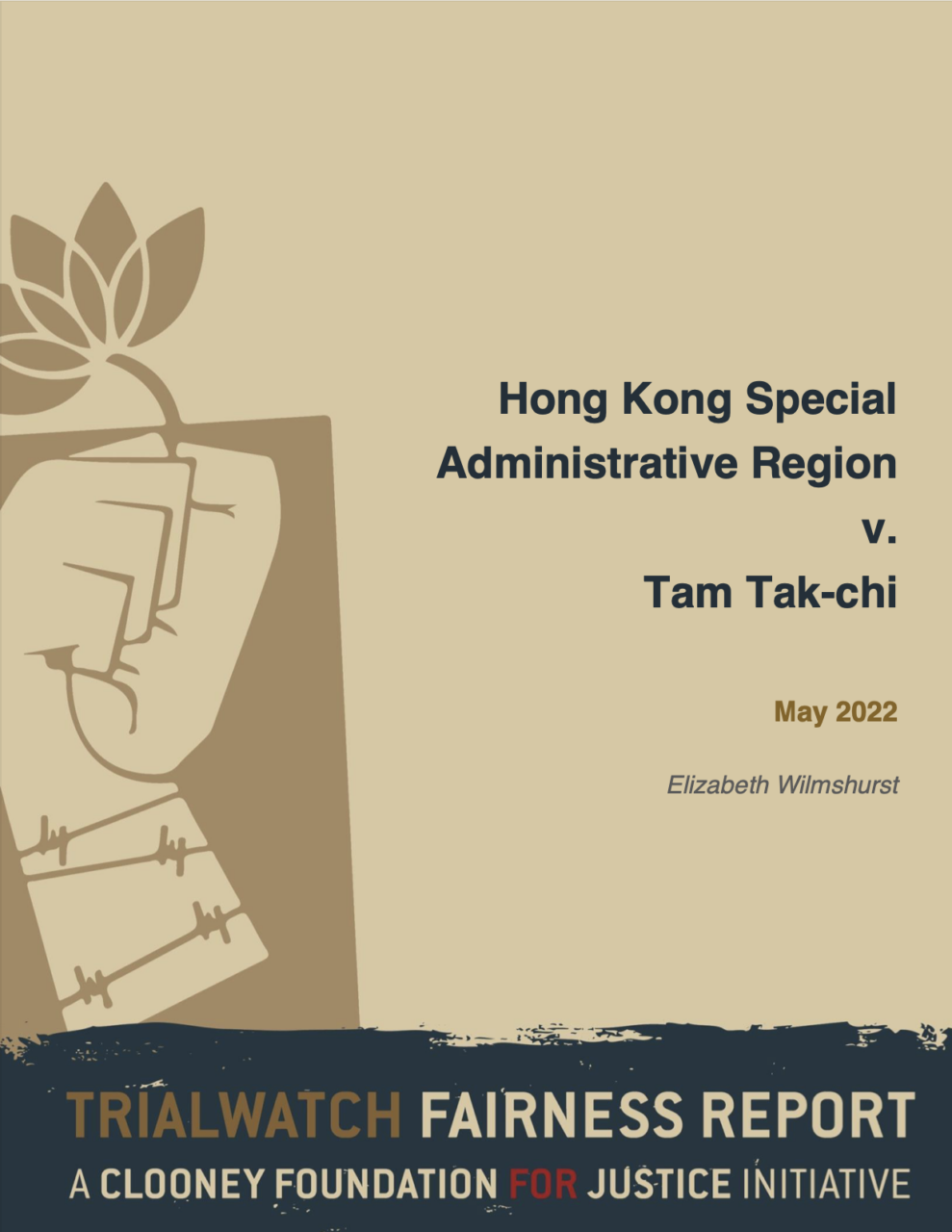10 Commonwealth states have repealed their sedition laws, including the UK.
5 Jurisdictions have increased the use of outdated sedition laws to quash freedom of expression.
Around the world, states often use broadly worded colonial-era sedition laws to charge journalists, activists, and others for anything from calls to peaceful protest to criticism of government policies and officials. Although sometimes justified as protecting national security, sedition laws are frequently used to target political speech and other forms of expression.
2024 is a Crucial Year
In February 2024, TrialWatch published a report updating its prior survey of sedition laws. The 2024 report covers recent legal developments, based on publicly available case material and monitoring of sedition cases, in India, Pakistan, Hong Kong, Thailand and Malaysia. In each place, 2024 will be a crucial year for either reducing or expanding the use of sedition to curb free expression, with ramifications not only for these five jurisdictions, but also more broadly.
13,000 People had sedition charges filed against them in India between 2010 - 2021, according to Article 14.
367 Investigations launched under Malaysia's sedition act in the past five years according to research by SUARAM.
147 People were prosecuted on sedition charges in Thailand since 2020, according to TLHR
50 People People w charged with sedition in Hong Kong in just three years. This number is likely even higher.
2,500 PTI workers had charges filed against them in Pakistan, including sedition charges, in November 2023.
In all five places, sedition laws are vague and broadly applied. The five jurisdictions are either currently using or have historically used sedition to suppress free speech.
In India, the sedition law has been on hold since May 2022 by order of the Supreme Court, which is expected to decide on the law’s constitutionality in 2024. In parallel, the Parliament has replaced the sedition law with another broad and vague security law. The replacement does not impact ongoing cases, leaving the fate of these cases with the Indian Supreme Court.
In 2024, Pakistan’s courts may decide whether or not its sedition law is constitutional. In 2023, the Lahore High Court ruled the country’s sedition law was unconstitutional, but the decision was appealed and sedition charges continue to be filed outside the jurisdiction of that court, including against a lawyer who had criticized the military. In 2023, a Senate Committee also unanimously recommended that a bill repealing the sedition law should be passed.
Pakistan’s authorities have long used sedition and related charges to stifle political activism, including on university campuses. Sedition charges have been filed against at least four former prime ministers and in November 2023, police reportedly filed charges, including sedition charges, against 2500 workers of the political party PTI.
Despite it being dormant for 50 years, Hong Kong has been steadily reviving its sedition law since 2020. Journalists, activists, and ordinary citizens are facing sedition charges for chanting slogans, for making social media posts, and even for wearing t-shirts bearing ‘seditious’ text.
In 2021, Tam Tak-Chi, became the first person to go on trial for sedition since the 1960s. He was convicted, and an appeals court is expected to rule on his case in 2024.
Also in 2024, the case against two editors from Stand News, which started with their arrest in 2021, will be concluded. This verdict and the decision in Tam Tak-Chi’s appeal will set an important precedent for the future of sedition in Hong Kong.
In 2024, a Thai appeals court is likely to decide whether to uphold the sedition conviction of a woman for participating in and allegedly livestreaming protests.
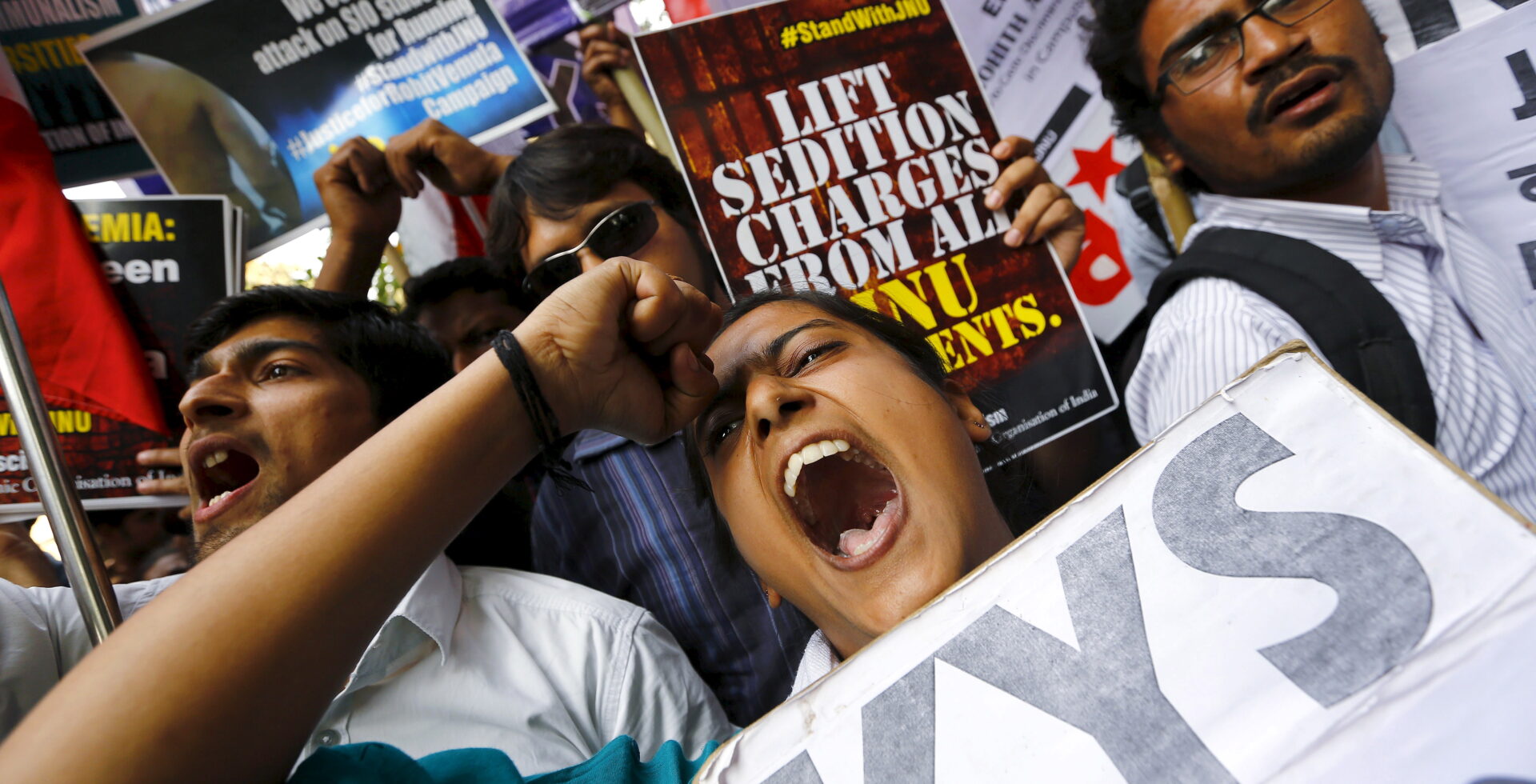
TrialWatch has monitored numerous sedition cases in these states and is taking action to combat the use of sedition laws to suppress speech.
In Thailand
A woman charged with sedition for participating in and allegedly live-streaming protests; students charged with sedition for alleged speeches at a protest; lawyers and protesters charged with sedition for criticism of the monarch; and members of an organization the authorities believe to be anti-monarchy charged with sedition for distributing leaflets and t-shirts.
In Pakistan
An academic charged with sedition for participation in protests by student groups in 2019 that called for an end to surveillance by universities and restoration of student organizations. TrialWatch monitored the use of the sedition law ahead of the 2024 elections and continues to do so in their aftermath.
In India
A group of journalists charged with sedition for tweeting about the death of a protestor at the January 2020 farmers’ protest in Delhi. TrialWatch is anticipating a judgment by the Supreme Court of India on the constitutionality of the sedition law, which could have important ramifications not just domestically but also for other jurisdictions.
In Malaysia
Following a letter submitted to Malaysian authorities by TrialWatch and partners advocating for repeal of the sedition law, the government announced that it would review and narrow the scope of the law. Since then, however, sedition cases have been opened against opposition figures for criticizing the government. In 2024, TrialWatch will continue monitoring Malaysia’s use of sedition laws.

